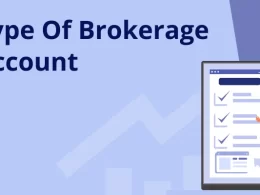Property investment can be an excellent way to build wealth and achieve long-term financial goals. However, to achieve maximum return on investment (ROI), it’s essential to have a clear property investment strategy in place. This article will discuss the key elements of a successful real estate investment strategy.
Set Your Goals
The first step in creating a property investment plan is to set your financial goals. Determine how much money you want to invest and what ROI you hope to achieve. Consider your timeline for achieving your goals, risk tolerance, and desired level of involvement in the investment.
Conduct Research
Once you’ve identified your investment goals, it’s time to research the property market. Look for areas experiencing growth, have good rental demand and vacancy rates, and offer the potential for capital growth. When evaluating locations, consider factors such as infrastructure, population growth, job opportunities, and local amenities.
Create a Budget
Creating a budget is crucial for any investment strategy. Determine how much you can afford to invest and how much you are willing to spend on maintenance, repairs, and other expenses associated with property ownership. It’s also essential to consider the costs of obtaining finance, such as stamp duty and legal fees.
Build a Diversified Portfolio
Diversification is critical to reducing investment risk and maximising ROI. Rather than investing all your funds into a single property, consider building a diversified portfolio that includes properties in different locations and with different types of tenants. This will help to spread your risk and ensure that your investment is not dependent on the performance of a single property.
Consider Property Management
Property management can be time-consuming and challenging, mainly if you are a busy professional or have other commitments. Consider engaging a professional property management company’s services to handle your investment’s day-to-day operations. This can help to minimise vacancies, ensure rent is paid on time, and reduce the likelihood of costly maintenance issues.
Stay Up-to-Date
The property market is constantly evolving, so staying current with the latest trends and developments is essential. Attend industry events, read property investment publications, and stay informed about changes to regulations that may impact your investment strategy.
Review Your Strategy Regularly
Regularly reviewing and adjusting your property investment plan ensures long-term success. Monitor the performance of your portfolio, evaluate new opportunities, and consider how changes to your financial situation or goals may impact your investment strategy.
Long-Term vs. Short-Term Strategies: Which One Is Right for You?
Regarding property investment, long-term and short-term are to be considered. Long-term investment involves purchasing a property to hold onto for several years, allowing it to appreciate over time. On the other hand, short-term investment is buying a property to sell quickly for a profit or renting it out for short periods. Choosing the right strategy depends on financial goals, risk tolerance, and personal circumstances. Consult with a professional to determine which option is best suited for you.
Conclusion
A successful property investment strategy requires careful planning, research, and ongoing evaluation. By setting clear goals, conducting thorough research, creating a budget, diversifying your portfolio, considering property management, staying up-to-date, and regularly reviewing your strategy, you can maximise your ROI and achieve long-term financial success through property investment. If you need help developing a real estate investment strategy that aligns with your financial goals, contact a professional management company today to speak with one of the experienced investment professionals.









